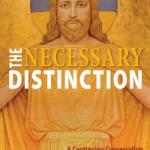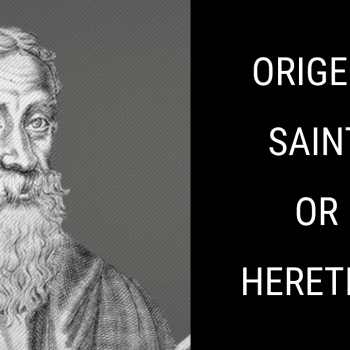Continuing on the previous post addressing Concordia Publishing House’s new Confessing the Gospel: A Lutheran Approach to Systematic Theology, in this article, I will examine the short section on apologetics in John F. Johnson’s treatment of the doctrine of God (81-88).
General Knowledge of God
Like most systematic treatments of God, this volume addresses the commonly discussed arguments for the existence of God as well as their relative usefulness. Johnson uses Luther’s helpful distinction between a general knowledge of God, which is that knowledge which is arrived at apart from special revelation, and a proper knowledge of God which comes only through the gospel (82). This general knowledge contains both a priori and a posteriori aspects, as it is known both from the human heart and observation of the natural world. Johnson cites Luther to the effect that this knowledge of God includes divine attributes, as is attested in Romans 1, along with the realities of both creation and providence. What cannot be known by natural revelation, however, is the extent of God’s love as revealed in the gospel. Natural knowledge is knowledge of law. Though I find this section to be a good summary, it is significant that natural knowledge is associated with the second use of the law without the first. [1] Luther often speaks about the general knowledge of God as including the civil use of the law. What is missing here, I think, is the distinction between natural knowledge coram Deo and coram mundo. Before God, natural knowledge can only lead to condemnation, but in the world, a general knowledge of God can be quite beneficial for the structuring of society. [2]
The Arguments for the Existence of God
Johnson overviews five common arguments for God’s existence, which include: the ontological argument, the cosmological argument, the teleological argument, and the moral argument. This list is far from exhaustive, but its limits are understandable due to the nature of such a project. While he accurately represents each argument, his evaluation of the use of such arguments is severely lacking. Johnson notes that Lutheran theologians have differed on the validity of such arguments, citing Melanchthon and Gerhard as proponents, but Thielecke and Ebeling as critics. [3] While such is certainly the case, it would be helpful if the article actually took a firm stance on such issues, rather than simply mentioning the existence of differences. One of the criticisms I mentioned earlier is that there is not enough attention paid to older scholastic thinkers in these texts, which rely too heavily (in my opinion) on the more existentialist Lutheran thinkers of the twentieth century. Several times, both positions are given validity and no strong stance is actually taken. I’d prefer a more blunt acceptance of certain ideas, but this is perhaps due to the nature of a project which is supposed to represent the theology of the LCMS as a whole, which is broader than is often supposed.
There is a lack of contemporary philosophical argument here, which is unfortunate. Johnson appears to rely on older sources for his exposition of these arguments without studying modern formulations. For example, there is no discussion of Plantinga’s epistemology, or of the modal restructuring of Anselm’s ontological argument. While I recognize that these cannot be explained in detail here, they deserve mentioning. Criticisms of each of the five arguments are presented, which was done in a very dismissive manner. The points raised by Johnson have been answered by Christian philosophers throughout the centuries, and such defenders of the proofs are not even cited, with the exception of one footnote that mentions Platinga’s God and Other Minds without any commentary. One gets the impression that arguments for the existence of God are inconclusive, but I contend otherwise. [4]
The intention of the author in this section is to emphasize the limits of natural revelation, as he concludes that true knowledge of God only comes through God’s Triune self-revelation. On such a point, I certainly agree. However, the contention that God is only truly known through Christ does not negate the premise that God’s existence can be definitively affirmed also by rational argumentation.
[1] “The natural knowledge of God embraces only the law, and its practical result is only a guilty conscience (Rom 1:20), fear of death (Heb 2:15), and complete hopelessness (Eph 2:12).” Confessing the Gospel, I:84.
[2] Joel Biermann’s recent book Wholly Citizens treats this issue well.
[3] Confessing the Gospel, 87.
[4] Edward Feser just released a book on five arguments for the existence of God which I plan on reading and reviewing soon.












